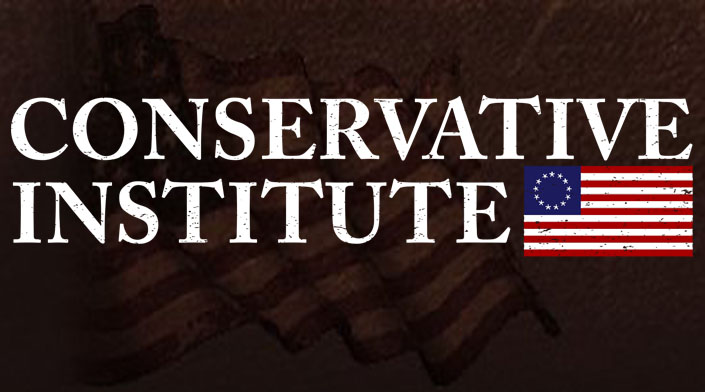DANIEL VAUGHAN: America's Military Strikes On Cartels Is Unambiguously Good
Donald Trump's hard pivot into Latin America has brought about drone strikes in the Atlantic and Pacific. Predictably, this has drawn backlash. But the blueprints for this plan were drawn a long time ago under the Obama administration. Trump is building on American strength and wiping out terrorists in the process - this is an unabashed good.
The latest strike hit a boat in the Pacific Ocean, wiping out 14 people and leaving one survivor. It's the deadliest strike yet, though certainly not the last. The Trump administration is hammering groups it has called narcoterrorists, and for good reason.
Early on in the Trump administration, the State Department declared several cartels to be terrorist organizations. The move was correct because these cartels operate no differently than the terrorist groups we've fought for a generation in the Middle East.
The connections are there, too. Hezbollah, for example, has deep roots in Latin America, specifically through those cartel networks. A Rand study found:
Although Hezbollah has historically received at least 70 percent of its funding from Iran, its Western Hemispheric networks provide critical supplementary revenue through sophisticated criminal enterprises. These include drug trafficking, arms smuggling, document fraud, and money laundering operations, often conducted in partnership with local criminal organizations.
Venezuela's Maduro specifically cut a deal with Iran, announcing a 20-year cooperation pact with the country. That happened in 2022, which was as good a sign as any that we should have moved towards designating them a state sponsor of terror - especially with Hezbollah profiting from this arrangement.
Instead, the Biden administration tried lifting sanctions imposed on Venezuela by the Trump administration in 2022. And did nothing more than appease the rise of corrupt socialism in the country. The appeasement with Venezuela was no different than the Iran playbook, and both ended up as disasters.
Now, Iran is on the brink of collapse, which is allowing Trump to pivot to Venezuela and Colombia.
It seems clear at this stage that the Trump administration is pushing for regime change in Venezuela. Whether that happens remains to be seen. It is notable that María Corina Machado, this year's Nobel Peace Prize winner, leads the Venezuelan opposition.
Furthermore, these strikes are forcing Mexico to join in the efforts as well. They can't sit on the sidelines idling while the United States is killing these narcoterrorists just off their shores, making the oceans safe again.
These ships should not be freely going around in American waters. That they've had free rein in these areas is an abomination, and Trump is right to resecure this area of the world.
That brings us to the methods, though: strikes. The format is familiar to anyone who has paid attention to the drone strike warfare invented under George W. Bush, but popularized under Barack Obama. It's been one of the primary methods for the United States to go on the offensive against terrorist organizations, without keeping boots on the ground.
As Commentary Magazine noted back in 2013, in defense of Obama's drone program, critics of the strikes get the political will here completely wrong:
If one believes, as many of the critics of drone warfare do, that the proper strategies of counterterrorism are essentially defensive—including those that eschew the paradigm of armed conflict in favor of law enforcement and criminal law—then the strategic virtue of an offensive capability against the terrorists themselves will seem small. But that has not been American policy since 9/11, not under the Bush administration, not under the Obama administration—and not by the Congress of the United States, which has authorized hundreds of billions of dollars to fight the war on terror aggressively.
Since then, we can add the Trump and Biden administrations to this list, along with the ongoing push from Congress. America has a bipartisan desire to stay on the offensive regarding terrorists.
The cartels are the latest iteration of that, and they've got a history of working in conjunction with Hamas, Hezbollah, and other state sponsors of terrorism.
The Biden administration failed in every respect of foreign policy. The big failures exist in Ukraine and empowering Iran and Hezbollah, necessitating the Israeli response.
Trump is now cleaning up Latin America. Pushing China out of the Panama Canal was just a start. We have interests in pushing both the Chinese and terrorist organizations out of Central and South America.
Conducting strikes towards that end is entirely within our power, interest, and authority. We do not have to arrest these cartel members, as some pundits suggest. We didn't have to do that with any of the strikes with Iran or the Global War on Terror, and we don't have to here either.
This is the great privilege of being the sole global superpower. We dictate the terms on our end. And our interests align with killing cartel members who are supporting a state sponsor of terror in Venezuela, and pump the United States with drugs to fund their operations.
The White House should provide greater transparency to Congress about these strikes, as previous administrations did regarding strikes in the Middle East. However, Trump is entirely within his rights as the executive to hit these cartel members. In fact, any administration should do this.
If he pushes towards regime change, we can debate the merits of that in Venezuela. But conducting strikes and killing the bad guy is a good thing, and America should continue that practice.

